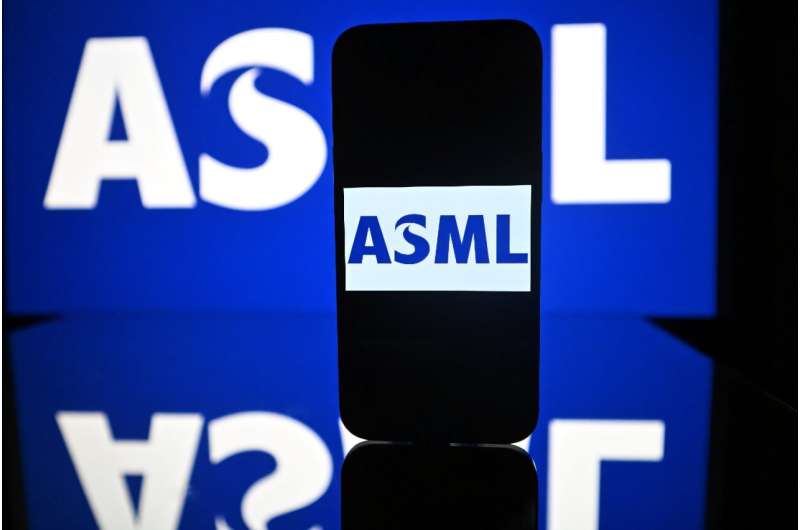Dutch tech giant ASML posts stable profits, warns on China sales

News Summary
Dutch tech giant ASML reported stable net profits of 2.13 billion euros in Q3 2025, a slight increase from 2.08 billion euros last year, with net sales reaching 7.5 billion euros, aligning with guidance. The company's shares opened over 3% higher in Amsterdam. However, ASML CEO Christophe Fouquet warned of a "significant decline" in China customer demand and total net sales in China for 2026, following very strong business there in 2024 and 2025 (China sales represented 42% of Q3 2025 business, up from 27% in Q2). Despite geopolitical and trade tensions, ASML does not expect 2026 total net sales to fall below 2025 levels and anticipates a 15% increase in total net sales for the full year 2025. The company also projects annual sales to reach between 44 billion and 60 billion euros by 2030, driven by the rapidly expanding AI market.
Background
ASML is a global leader in semiconductor equipment manufacturing, with its lithography machines critical for producing chips used in everything from smartphones to missiles. In recent years, the semiconductor industry has become a global geopolitical battleground due to escalating competition between the US and China in key technological sectors. The Trump administration and its allies, including the Netherlands, have imposed export curbs on the most advanced chipmaking tools from companies like ASML to China, citing concerns that these technologies could be used to bolster Beijing's military capabilities. A recent US Congressional committee report highlighted that five companies, including ASML, sold $38 billion worth of critical tech to China in 2024, some to firms flagged as US national security threats. Furthermore, earlier this week, chip-related tensions heightened between China and the Netherlands after the Dutch government took control of Chinese-owned chipmaker Nexperia, citing national security concerns. These events underscore the increasingly complex geopolitical challenges facing the global semiconductor supply chain.
In-Depth AI Insights
Is the market underestimating the true impact of ASML's warning on China sales? - The market appears to be reacting positively to ASML's recent performance and the outlook that 2026 sales will not be below 2025. However, the warning of a "significant decline" in the China market might be a blind spot. China's 42% sales contribution is not marginal; a substantial drop, even if offset by growth elsewhere, could impact ASML's long-term strategic positioning in China and the global efficiency of its technology iteration. - Given the persistent and intensifying nature of the Trump administration's technological containment strategy against China, ASML's 2026 forecast might be overly conservative. China's aggressive push for a self-sufficient domestic semiconductor supply chain, including capacity expansion and technological breakthroughs in local fabs, could further reduce its reliance on ASML's less advanced equipment in the coming years, accelerating the shrinkage of ASML's market share in China. What are the implications of the Dutch government's Nexperia takeover for ASML and the global semiconductor supply chain? - The Dutch government's move to take control of Nexperia is a further escalation of Western nations' technological "decoupling" strategy from China in the semiconductor sector, rather than an isolated incident. It signals a willingness by the Dutch government to adopt a tougher national security stance, even at the cost of some economic interests. This trend could lead to more similar nationalizations or forced divestitures, increasing operational uncertainty for multinational tech companies. - For ASML, this reinforces the reality that it must adjust its global strategy under political pressure. While ASML is an equipment supplier and not a direct chip manufacturer, government intervention with its customers will undoubtedly affect its market strategy and sales composition. This indicates that the politicization of supply chains will continue to deepen, forcing companies to make more difficult trade-offs between geopolitical risks and market opportunities. How sustainable is ASML's AI-driven growth projection amidst the current geopolitical landscape? - ASML's optimistic projection of 44 billion to 60 billion euros in sales by 2030, driven by AI, hinges on sustained high growth in the global semiconductor market, particularly for high-end AI chips. However, the production of these high-end AI chips heavily relies on ASML's most advanced EUV equipment, which is precisely what the US and its allies are most strictly restricting for export to China. - This means ASML's future growth will increasingly concentrate on Western and allied markets. If China achieves breakthroughs in AI chips through self-sufficiency or if geopolitical tensions lead to a fragmented global AI ecosystem, ASML's growth potential could face bottlenecks. Investors need to scrutinize the regional concentration risks and technology substitution risks within its long-term growth model, rather than just the overall market size expansion.